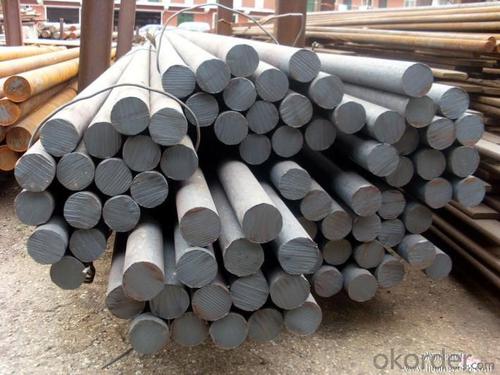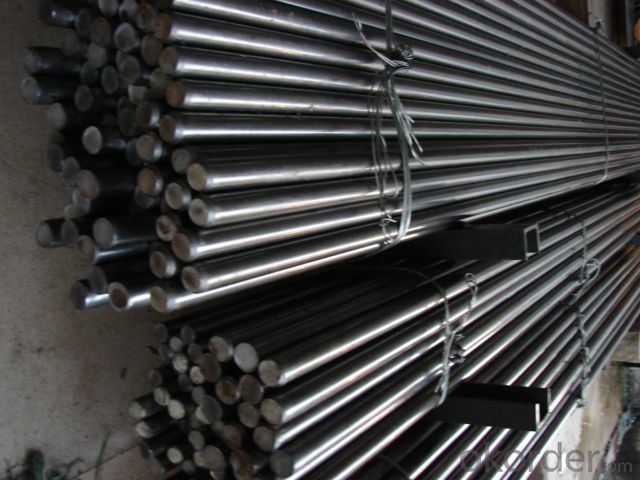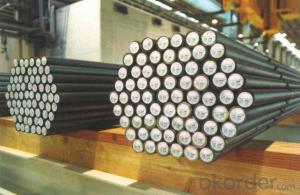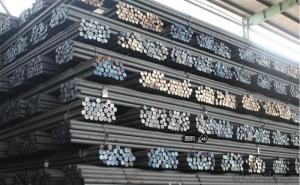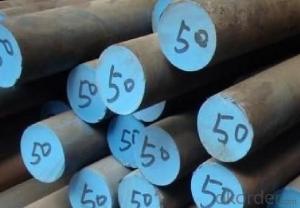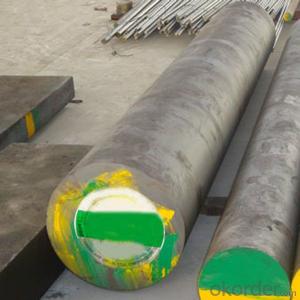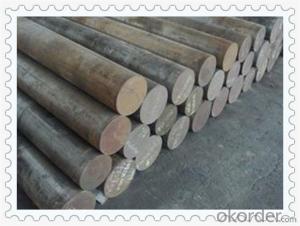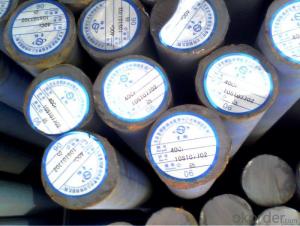SCM440 Forged Round Steel Bar Alloy Steel Bar
- Loading Port:
- China main port
- Payment Terms:
- TT OR LC
- Min Order Qty:
- 25 m.t.
- Supply Capability:
- 10000 m.t./month
OKorder Service Pledge
OKorder Financial Service
You Might Also Like
Specification
SCM440 Forged Round Steel Bar Alloy Steel Bar
Product information:
Diameter :250-800mm
Length:2.5M-12M
Steel grade : SCM440
We are making the below forged steel bars all the time and the detail is as followings:
40CrNiMo/42CrMo/38CrMoAl/50Mn/16Mn/40CrNiMo/35SiMn/AISI4140/AISI4340/SCM440/20Cr2Ni4/15CrMo/35CrMo/S355J2G3/15CrMo/Q345/17CrMnNiMo4
Standard:GB/T699/GB/T3077/ASTMA29/JIS/EN10083/DIN/
1)Delivery State:Hot forgerd +peeled+Normalizing+Quench+Temper Annealing that you can choose
UT:According Sep1921 Class 3 C/c or D/d.
Steel ingot:EAF+LF+VD.
2)Size:250-800mm
3)Length:1000-12000mm
4)Inspecting:UTS according to sep1921 or GB/T6402
5)Cut both ends
6)Payment:By 30% ,T/T in advanced payment or L/C at sight
7)Min qty:20MT
8)Dlivery terms:CFR or CIF
9)Delivery time:according to your qty
Product show
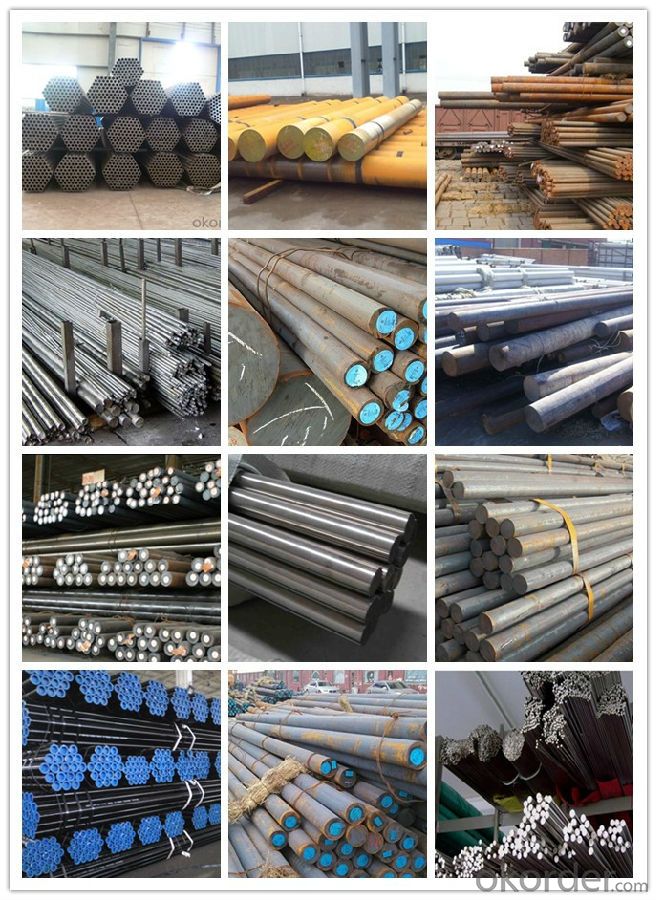
Workshop show
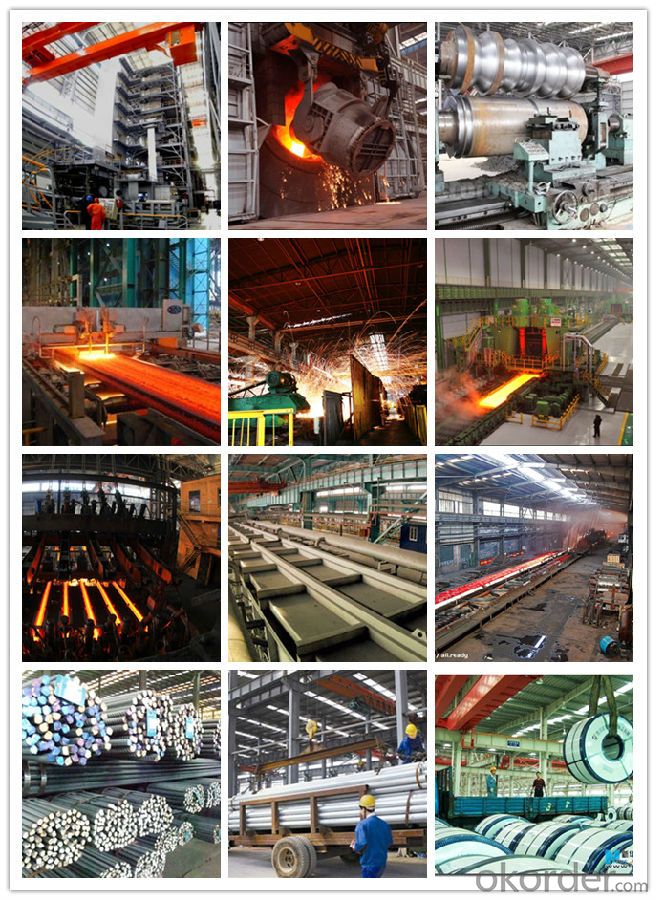
Our service:
-High manufacturing accuracy
-High strength
-Small inertia resistance
-Strong heat dissipation ability
-Good visual effect
-Reasonable price
Chose happens because of quality, then price, We can give you both.Additionally, we can also offer professional products inquiry, products knowledge train(for agents), smooth goods delivery, exellent customer solution proposals.Our service formula: good quality+good price+good service=customer's trust
SGS test is available, customer inspection before shipping is welcome, third party inspection is no problem.
If you need the sample, please feel free to let me know. Any question, we will contact you ASAP!
- Q: What are the different oil and gas grades of special steel?
- There are several different oil and gas grades of special steel, including but not limited to API 5CT, API 5L, and ASTM A106. These grades are specifically designed to meet the requirements and demands of the oil and gas industry, ensuring high strength, corrosion resistance, and durability in harsh environments.
- Q: How does the availability of raw materials affect the production of special steel?
- The production of special steel heavily relies on the accessibility of raw materials. Special steel, renowned for its outstanding strength, durability, and corrosion resistance, is widely used in industries like automotive, aerospace, and energy. The availability of raw materials, including iron ore, coal, chromium, nickel, and molybdenum, directly affects the production of special steel. These materials are crucial for the composition and characteristics of the steel. Any disruptions in their supply can significantly impact the production process. If the availability of iron ore, which is the primary source of iron, becomes limited or expensive, it can result in a scarcity of the main ingredient for steel production. Consequently, the production of special steel may decrease, leading to higher prices and potential shortages in the market. Similarly, the availability and cost of alloying elements play a vital role. These elements enhance the properties of steel, making it suitable for specific applications. For instance, chromium improves corrosion resistance, while molybdenum enhances strength at high temperatures. If these alloying elements are not readily available, it may hinder the ability to produce special steel with the desired properties. Moreover, the availability of energy resources like coal or natural gas is crucial for special steel production. These resources are used in the steelmaking process, particularly in the production of coke, which is essential for smelting iron ore. Limited availability or increased prices of energy resources can impact the cost and efficiency of steel production. In conclusion, the availability of raw materials plays a vital role in the production of special steel. Any disruptions or limitations in the supply of raw materials, including iron ore, alloying elements, and energy resources, can have a significant impact on the production process. This can result in higher prices, potential shortages, and compromised properties of the final product. Thus, ensuring a stable and sufficient supply of raw materials is crucial for the production of high-quality special steel.
- Q: How does special steel perform in high-pressure and high-temperature environments?
- Special steel is specifically designed to perform exceptionally well in high-pressure and high-temperature environments. It possesses unique properties that enable it to withstand extreme conditions without undergoing deformation, corrosion, or failure. One of the primary characteristics of special steel is its high strength. It is engineered to have superior mechanical properties, such as excellent tensile strength, which allows it to resist the immense pressure exerted on it in high-pressure environments. This strength ensures that the steel can maintain its structural integrity and not buckle or collapse under the immense force. Furthermore, special steel is highly resistant to corrosion and oxidation, even at high temperatures. This resistance is crucial in high-temperature environments where the presence of hot gases, steam, or caustic chemicals can cause regular steel to degrade rapidly. Special steel's resistance to corrosion and oxidation ensures its longevity and reliability, making it an ideal choice for applications in such challenging conditions. Additionally, special steel exhibits excellent heat resistance. It can withstand extreme temperatures without losing its mechanical properties, such as strength and hardness. This characteristic is crucial in high-temperature environments where regular steel would weaken, soften, or even melt. Special steel's ability to maintain its structural stability even in extreme heat ensures the safety and reliability of equipment and structures operating in such conditions. Moreover, special steel is known for its excellent thermal conductivity. This property allows it to efficiently transfer heat away from the high-temperature environment, preventing localized hotspots and thermal stress. By effectively dissipating heat, special steel ensures the overall stability and performance of equipment and structures under high-pressure and high-temperature conditions. In summary, special steel performs exceptionally well in high-pressure and high-temperature environments due to its high strength, resistance to corrosion and oxidation, heat resistance, and excellent thermal conductivity. These properties make special steel a reliable and durable material for various applications, including power generation, oil and gas exploration, aerospace engineering, and many more.
- Q: How does special steel contribute to the telecommunications industry?
- Special steel plays a crucial role in the telecommunications industry by providing the necessary strength, durability, and resistance to various environmental factors. In telecommunications, special steel is primarily used in the manufacturing of transmission towers, antenna systems, and other supporting structures. Transmission towers, for instance, are the backbone of the telecommunications network. They need to be able to withstand extreme weather conditions like strong winds, heavy precipitation, and even earthquakes. Special steel, with its high tensile strength and resistance to corrosion, ensures that these towers remain stable and operational under such challenging circumstances. Furthermore, special steel is also used in the construction of antenna systems. Antennas, whether for satellite communication or wireless networks, require materials that possess excellent electrical conductivity and low signal loss. Special steel alloys can meet these requirements, allowing for efficient signal transmission and reception. Moreover, special steel offers the advantage of being lightweight compared to other materials while maintaining its strength. This weight reduction is particularly beneficial when it comes to constructing structures that need to be installed at significant heights, such as telecommunication towers. By using special steel, telecommunications companies can achieve cost savings in both construction and transportation. Additionally, special steel's durability and resistance to corrosion make it ideal for long-term use in the telecommunications industry. These properties ensure that the structures and equipment made from special steel have an extended lifespan, reducing maintenance and replacement costs. This longevity also contributes to the overall reliability and stability of the telecommunications network. In summary, special steel's unique properties, including its strength, durability, resistance to environmental factors, and efficient signal transmission capabilities, make it an essential material in the telecommunications industry. By providing the necessary support and reliability, special steel contributes significantly to the seamless operation of communication networks, enabling efficient and reliable connectivity for individuals and businesses worldwide.
- Q: How is special steel used in the production of gears?
- Special steel is used in the production of gears due to its high strength, durability, and resistance to wear and fatigue. It provides the necessary toughness and hardness required to withstand the stresses and loads that gears experience during operation. Additionally, special steel can be heat treated to enhance its properties, ensuring precise dimensions and improving the overall performance and lifespan of gears.
- Q: Can special steel be used in the electronics manufacturing industry?
- Yes, special steel can be used in the electronics manufacturing industry. Special steel, such as stainless steel or alloy steel, can be used for various applications in electronics manufacturing, including the production of components, casings, connectors, and other parts. The unique properties of special steel, such as corrosion resistance, high strength, and thermal conductivity, make it suitable for use in the electronics industry, where precision, durability, and reliability are crucial.
- Q: What are the different nitriding techniques used for special steel?
- There are three main nitriding techniques used for special steel: gas nitriding, salt bath nitriding, and plasma nitriding. Gas nitriding involves exposing the steel to ammonia gas at high temperatures, resulting in the diffusion of nitrogen into the surface. Salt bath nitriding involves immersing the steel in a bath of molten salt containing nitrogenous compounds, allowing for nitrogen diffusion. Plasma nitriding, on the other hand, uses a low-pressure plasma to bombard the steel surface with nitrogen ions, creating a hardened layer. Each technique offers unique advantages and is chosen based on the specific requirements and properties desired for the special steel.
- Q: How does special steel perform in high-temperature oxidation resistance?
- Special steel is specifically designed to have excellent high-temperature oxidation resistance. This type of steel contains alloying elements such as chromium, aluminum, and silicon, which form a protective oxide layer on the surface when exposed to high temperatures. This oxide layer acts as a barrier, preventing further oxidation and corrosion of the steel. The high-temperature oxidation resistance of special steel is crucial in applications where the material is exposed to extreme heat and oxidation, such as in gas turbines, heat exchangers, and furnaces. The protective oxide layer helps to maintain the integrity and strength of the steel, even under harsh conditions. Furthermore, special steel also exhibits excellent creep resistance at high temperatures. Creep refers to the gradual deformation of a material under a constant load and elevated temperatures. The unique composition of special steel provides it with the ability to resist creep deformation, enhancing its overall performance and reliability in high-temperature environments. In conclusion, special steel performs exceptionally well in high-temperature oxidation resistance due to its alloying elements and the formation of a protective oxide layer. Its ability to resist oxidation and maintain its structural integrity at elevated temperatures makes it a preferred choice for various industrial applications.
- Q: How is special steel used in the aerospace sector?
- Special steel is used in the aerospace sector for various applications such as manufacturing engine components, landing gear, and structural parts. Its high strength-to-weight ratio, corrosion resistance, and ability to withstand extreme temperatures make it ideal for enhancing the performance, durability, and safety of aircraft.
- Q: What is the tensile strength of special steel?
- The tensile strength of special steel can vary depending on the specific alloy and manufacturing process, but it is generally much higher than that of regular steel.
Send your message to us
SCM440 Forged Round Steel Bar Alloy Steel Bar
- Loading Port:
- China main port
- Payment Terms:
- TT OR LC
- Min Order Qty:
- 25 m.t.
- Supply Capability:
- 10000 m.t./month
OKorder Service Pledge
OKorder Financial Service
Similar products
Hot products
Hot Searches
Related keywords



